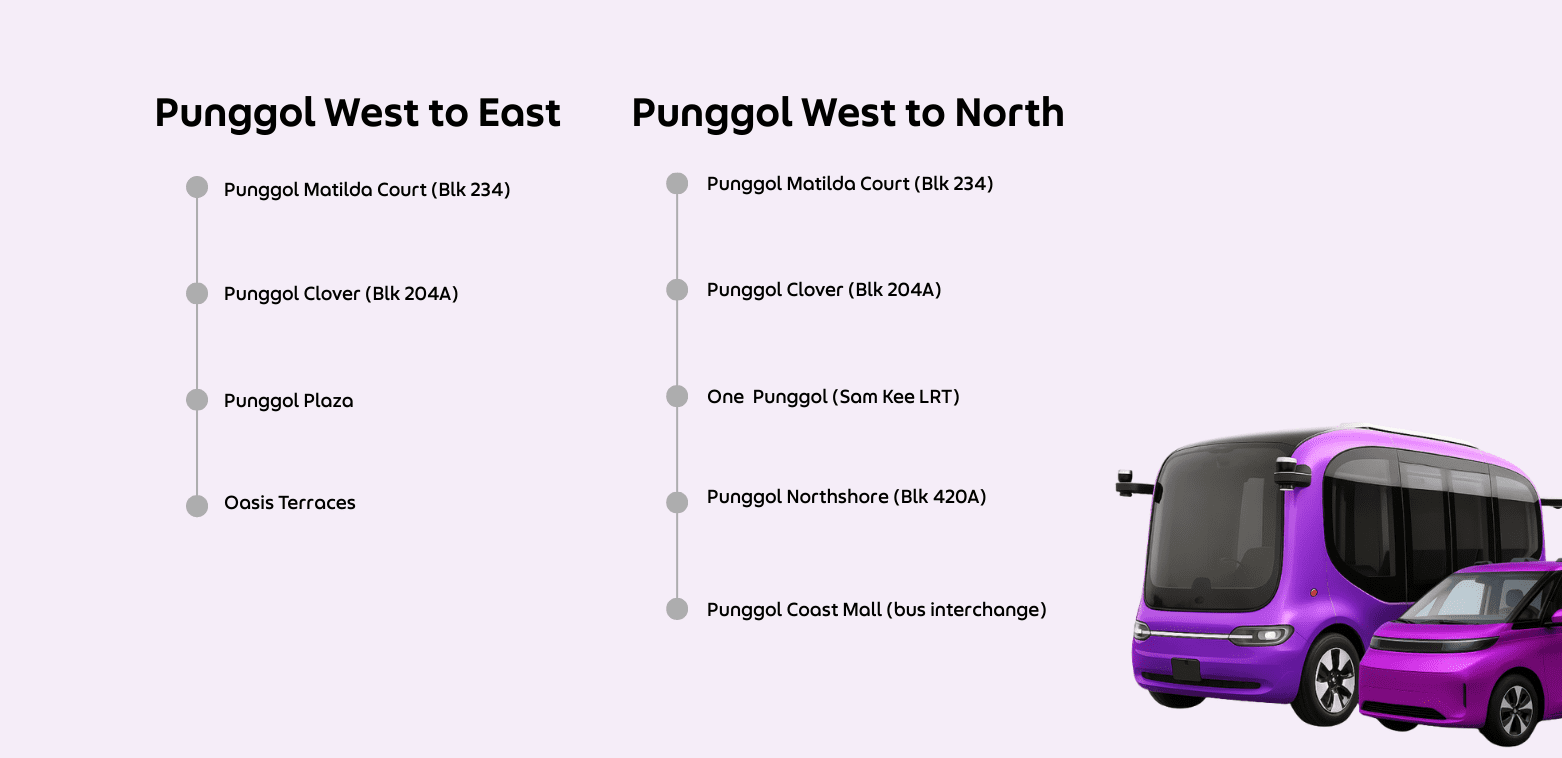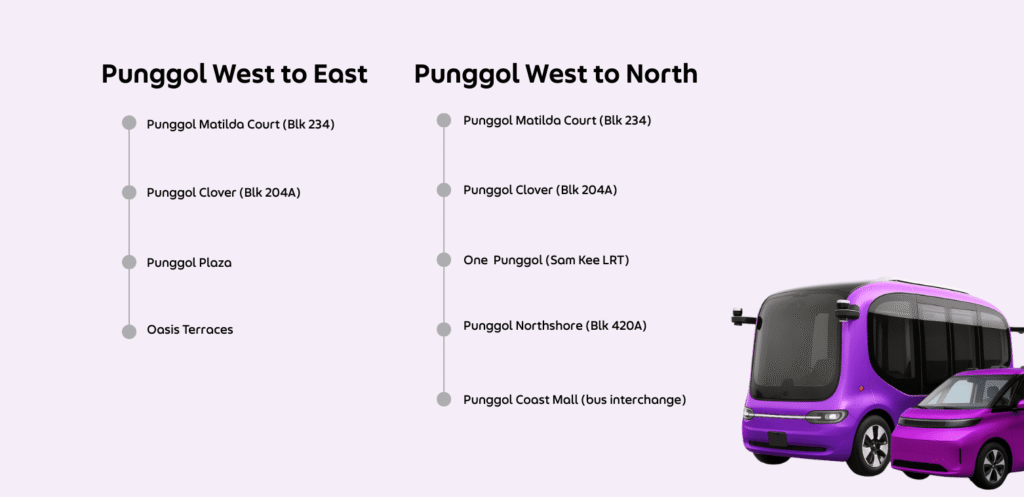Grab is bringing autonomous rides to the heartlands with the launch of Ai.R, its first autonomous vehicle (AV) service in Singapore. The service, developed in partnership with Chinese AV technology company WeRide, has been appointed by the Land Transport Authority (LTA) to operate two fixed routes in Punggol, making it Singapore’s first autonomous shuttle in a residential neighbourhood.
The Ai.R fleet will start with 11 vehicles, featuring two WeRide models: the five-seater GXR and the eight-seater Robobus. Both models have cleared Singapore’s Milestone 1 (M1) safety assessment, which certifies their ability to operate autonomously under local traffic rules. A trained Grab safety operator will be onboard during the initial phase to take over if needed.
The move comes as Grab looks to explore how AVs can address mobility challenges in Southeast Asia. While passengers in cities such as San Francisco, Los Angeles, Shanghai, and Guangzhou can already book and pay for driverless rides, Grab is using Singapore as a testbed given its infrastructure and regulatory readiness.
Don’t miss: STB partners Grab to elevate visitor experience and support local businesses
In July, the company launched Singapore’s first autonomous electric shuttle bus with Korea’s Autonomous A2Z, transporting employees between Grab HQ and one-north MRT. The Punggol pilot with WeRide marks Grab’s first consumer-facing AV service, with passenger rides expected to begin in early 2026.
In the near term, AVs could help improve access in low-density neighbourhoods, industrial estates, and campuses. They can also strengthen first- and last-mile connections and complement public transport during off-peak hours or at high-demand hotspots such as airports and hospitals.
GrabAcademy and WeRide have been training private-hire and taxi driver-partners to become Safety Operators for Ai.R since August. The programme combines theory and hands-on driving, covering AV systems, manual overrides, and emergency protocols.
GrabAcademy will expand training pathways further as new AV roles emerge, including remote operators, fleet managers, and customer support officers.
From this month, Ai.R vehicles will begin route familiarisation along two designated Punggol routes, covering destinations such as Punggol Plaza, Oasis Terraces, One Punggol, and Punggol Coast Mall.

Rides will be bookable and trackable in the Grab app, with all passengers automatically covered by Grab’s personal accident insurance policy.
Grab said insights from Singapore will help refine AV services for Southeast Asia’s diverse road conditions, from Jakarta’s motorcycle-heavy traffic to Bangkok’s TukTuk corridors.
“We see the potential of autonomous vehicles to improve connectivity within underserved neighbourhoods in the near term. Together with our AV partners such as WeRide, we are building a leading AV passenger fleet with a diverse range of vehicle models, to bring more transport options to the public,” said Alex Hungate, president and COO of Grab.
Jennifer Li, CFO and head of international at WeRide, added that the deployment of GXRs in Singapore marked a regional milestone: “Together with Grab, these AVs will support smarter mobility in Singapore by integrating with the public transport network and enhancing first- and last-mile connectivity for residents.”
“Singapore’s leadership in demonstrating the potential of AVs with this initiative sets a benchmark for the region, paving the way for WeRide to extend GXR passenger services to more communities,” added Li.
This isn’t Grab’s foray into technology to better improve experiences for its customers. In June this year, Grab in the Philippines took to the skies with the pilot launch of its delivery drone.
Created in partnership with the department of information and communications technology (DICT), the department of transportation (DOTr) and property giant Megaworld, the trial sees Grab riders handling collection and final delivery from designated drone landing zones, while unmanned aerial vehicles will take on the mid-mile, flying over congestion and cutting down delays that plague traditional road networks.
The pilot will be conducted between two Megaworld developments in Metro Manila – a deliberately controlled setting designed to probe the real-world viability of drones in commercial delivery. Only selected users and merchants will be able to access the service during its initial run, providing Grab and its partners with valuable operational and regulatory data.
Accelerate your brand’s growth with AI-first strategies, emerging tech and data-driven experiences. Join 500+ marketing leaders at Digital Marketing Asia 2025 Singapore on 24–25 September to uncover transformative trends, real-world wins and powerful ideas for 2025 and beyond.
Related articles:
Why self-driving cars won’t take off in Indonesia anytime soon, according to Grab
Grab takes to the skies: Philippines launches drone delivery pilot
Grab pushes back as drivers demand sweeping reforms to platform model






